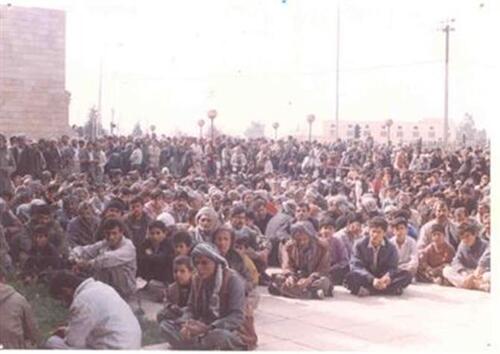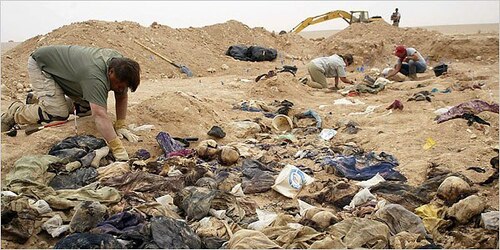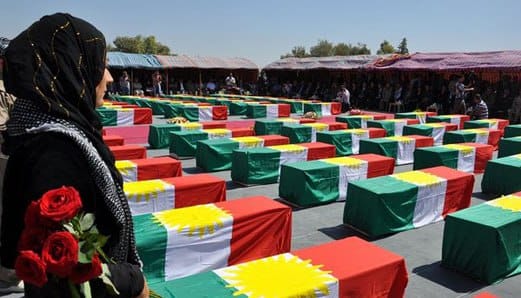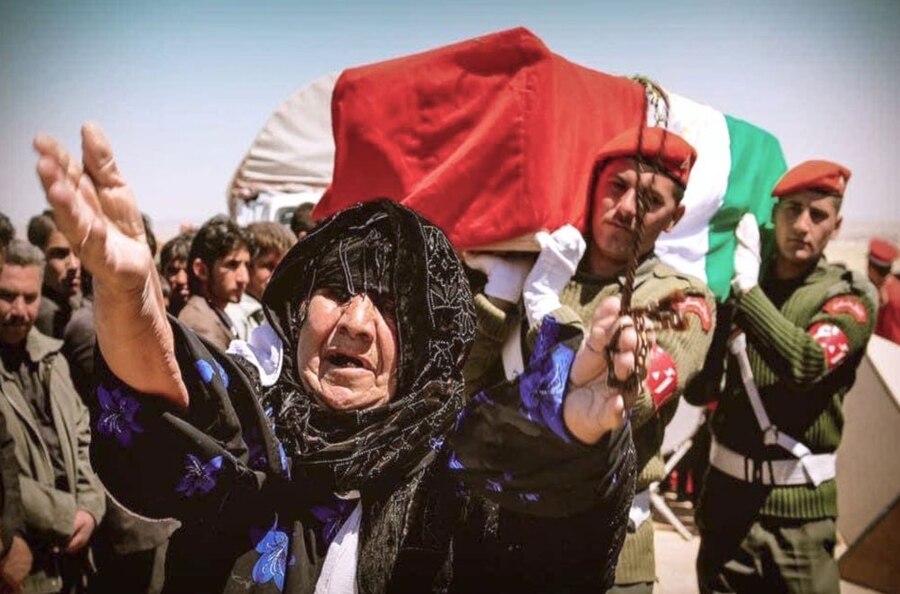For hundreds of years, Kurds have been killed and genocide by their enemies. One of the most extensive and cruelest genocides of the Kurds was "Anfal" done by the Ba'ath regime of Iraq against the Kurdish citizens of the South part of Kurdistan that resulted in ruining more than three thousand Kurdistan villages and more than 182 thousand civil citizens were genocide by the Iraqi Army.
In March 1988, the Ba'ath regime of Iraq began a chain of ground and air operations called "Anfal" throughout the South part of Kurdistan. During the Anfal operation, the Iraqi army had full permission to ruin, fire, and plunder the Kurdish regions and arrest, kill, and genocide the Kurds. Ali Hassan Al Majid (Chemical Ali) was the trusted cousin of Saddam Hossein who led this extensive genocide operation.
The main goal of these attacks was the civil and innocent citizens living in Kurdistan villages. The Iraqi army considered the civil citizens and armed forces of Kurdistan alike while ruining their lands. "Adnan Khair Allah", the Iraqi Defense Minister at that time, justified the genocide of innocent people as follows: "We cannot separate the civil citizens from the armed forces because they all wear Kurdish suits."

The Ba'ath Party leaders using a stand on the front lines of the war in those years because of Iran's weakness implemented their criminal plan called Anfal (that was supposed to be done in eight stages). According to this plan, the name of which was the same as the eighth verse of the Qur'an, these ruining eight stages should be implemented in a way that a large number of the Kurdish citizens in the South part of Kurdistan were forced to abandon their lands and move to the deserts of southern Iraq so that they will be banished from their lands and if some of them wanted to move to the neighboring countries they were free to leave.
Based on the official statistics during the seven-month-long Anfal operation, from February to September 1988, which was only implemented in Kirkuk, Diyala, Nineveh, and Salaheddin provinces, more than 3 thousand villages were ruined and more than 182 thousand Kurdish citizens were genocide by the Iraqi army forces. Halabja, Tawela, Khormal, Say Sayaq, Penjwen, and … got ruined and the citizens fled these cities.
The basic goal of the Iraqi regime at that time was not to prove their dominance by committing Anfal in 1988 but the reports that leaked out indicated that the Iraqi regime had used chemical weapons to genocide the civil citizens.

Ba'ath's first attempts were implemented on February 23, 1988, against the cities on the east side of Doukan Lake near Iran’s borders and the northern Suleimani Province. Almost a month later on March 16, 1988, Halabja city witnessed the implementation of the new weapon by the Iraqi army. Halabja, like many other cities in the South part of Kurdistan, developed a great deal from the end of 1970 to 1980 due to the villagers' and citizens' return. At first, the Iraqi army used large-scale fire weapons to attack Halabja. Later, they attacked the city with 6 to 8 thousand citizens with chemical bombs. It is estimated that about 4 to 7 thousand individuals were martyred in this attack.
Human Rights Watch (HRW), confirmed that during Anfal 50 to 100 thousand people got killed however, "Mc Duval" claimed this number to be 100 to 200 thousand people.

Baxtiyar Ali, the great Kurdish author and novelist, talked about Anfal in his book called "The Taste of loving death":
In order to understand Anfal there is only one way; one should understand Ba'ath. Without understanding Ba'ath, we cannot tie Anfal to its historical, social, and psychological phenomena. Whatever the source of Anfal is, whatever historical or ideological root it has, all of them have once passed through Ba'athism and have gained a new form inside it and they have become a part of Ba'ath culture. Thus, if we want to understand the ancient sources of Anfal, first we have to understand Ba'ath mechanisms and their way of applying those sources because Ba'athism is a phenomenon that can change the essence of all the other phenomena that pass through it.
Rafiq Sabir, the Kurdish poet talks about "Anfal" like this:
They chased us
We did not even have time to die…








